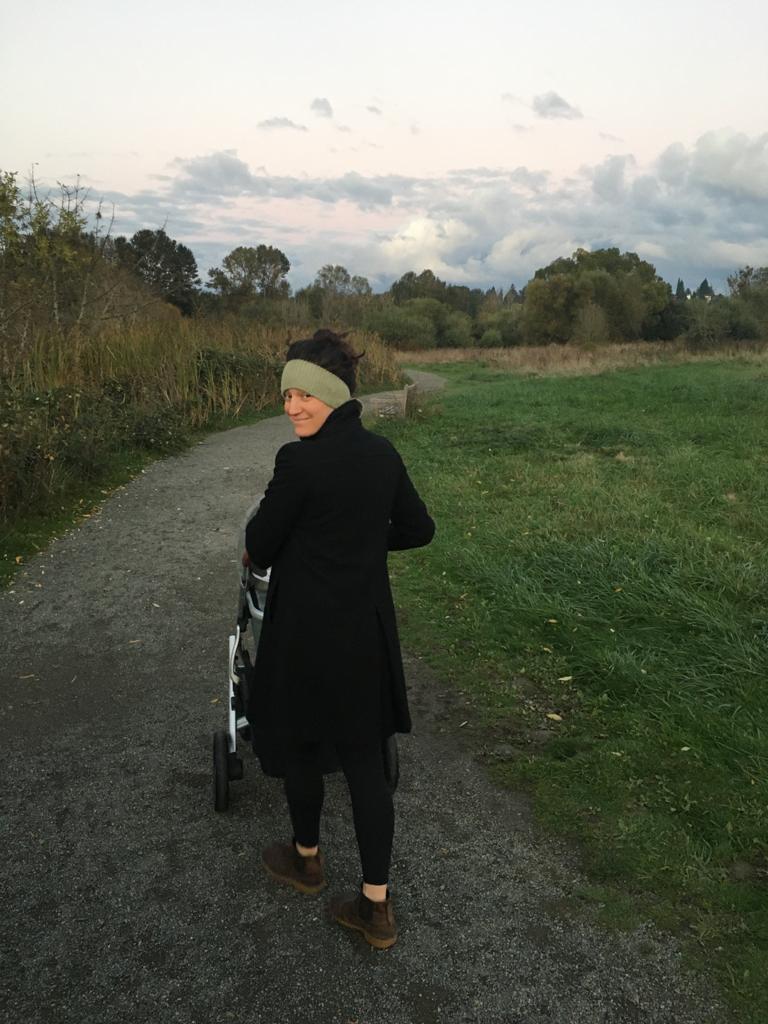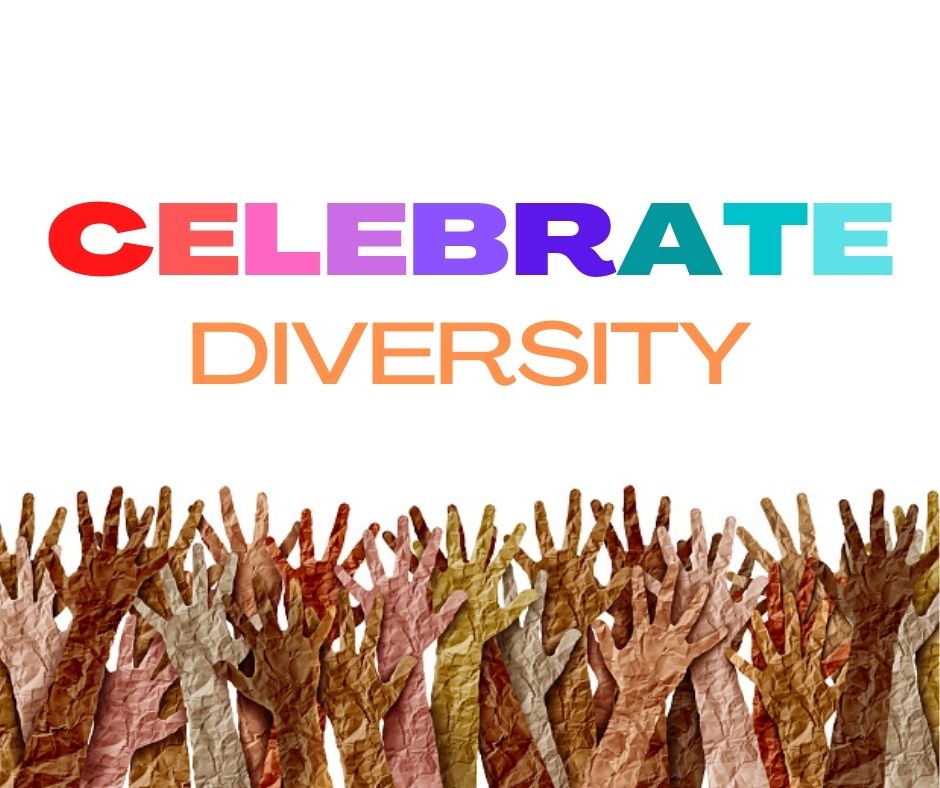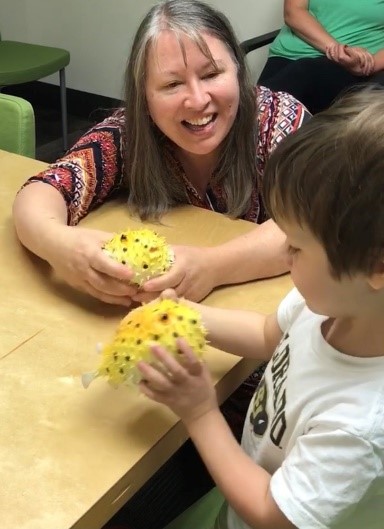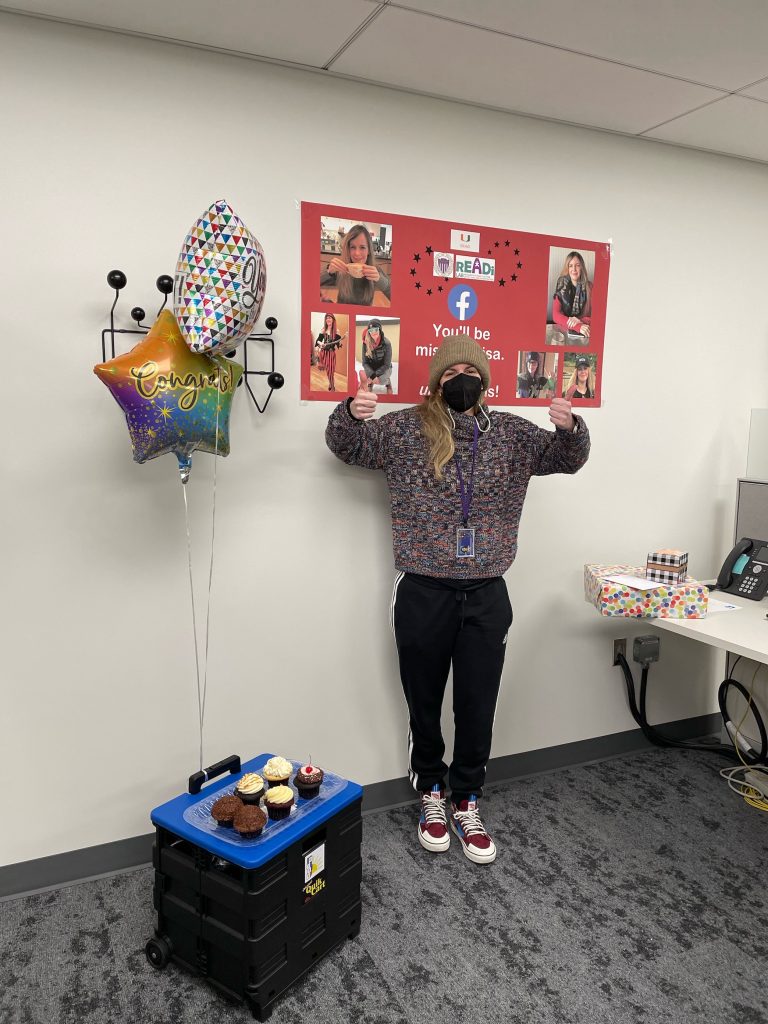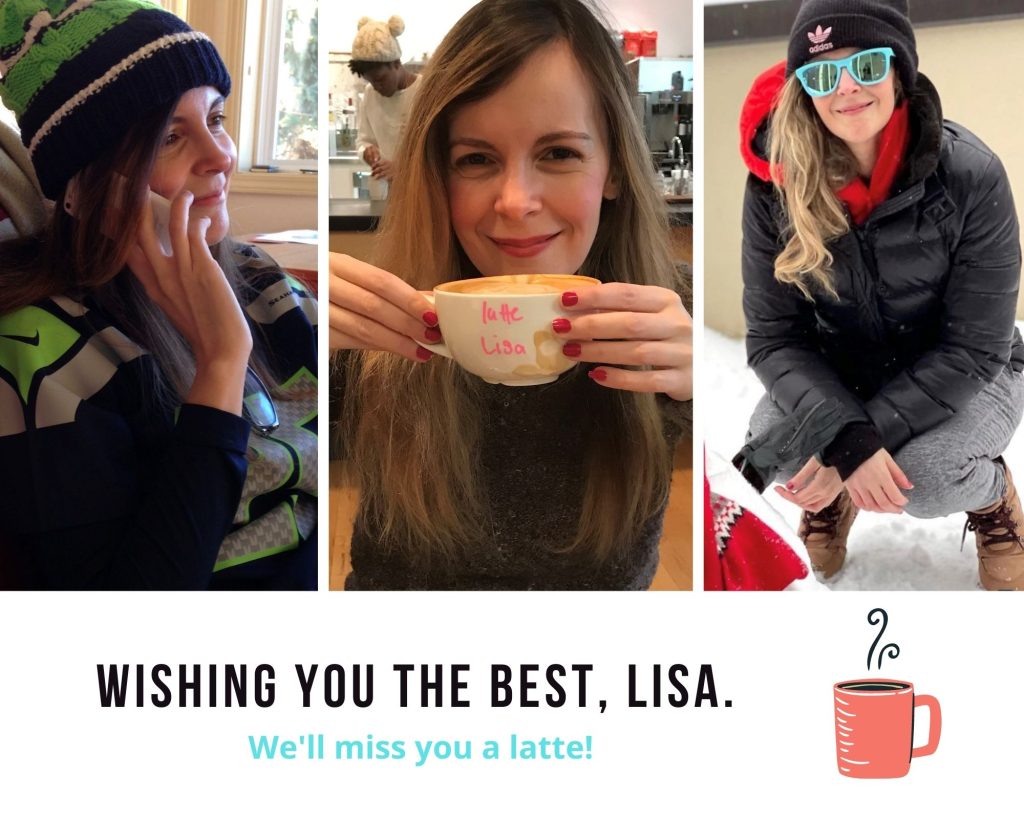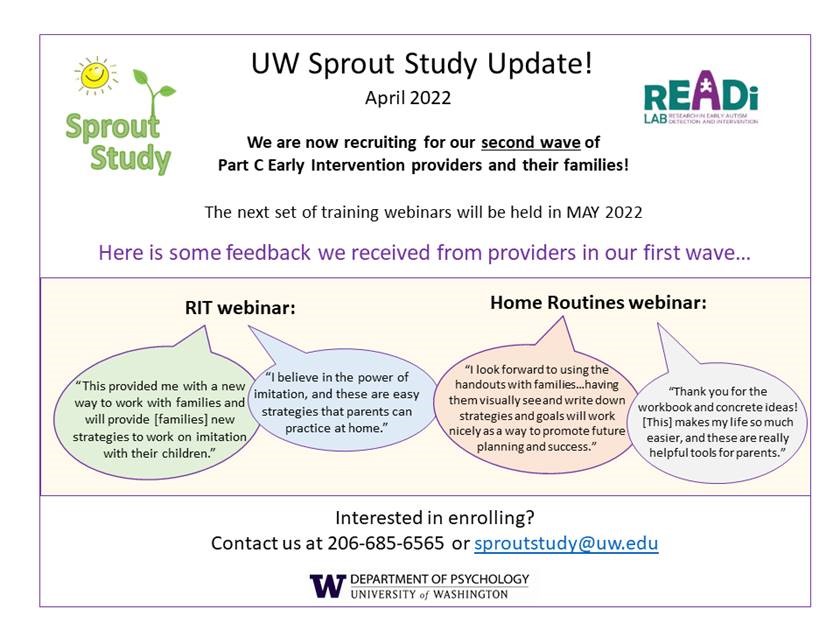
We are now gearing up for our next wave of trainings for our SPROUT Study and are hoping to enroll additional Early Intervention providers. We have had very positive responses to our first wave of trainings (see above). Please contact us if you would like additional information about this opportunity or have any questions!
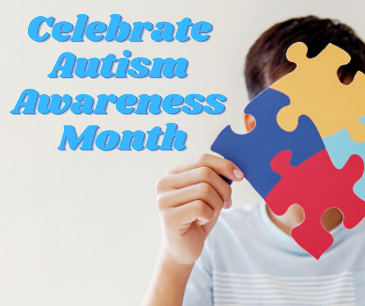

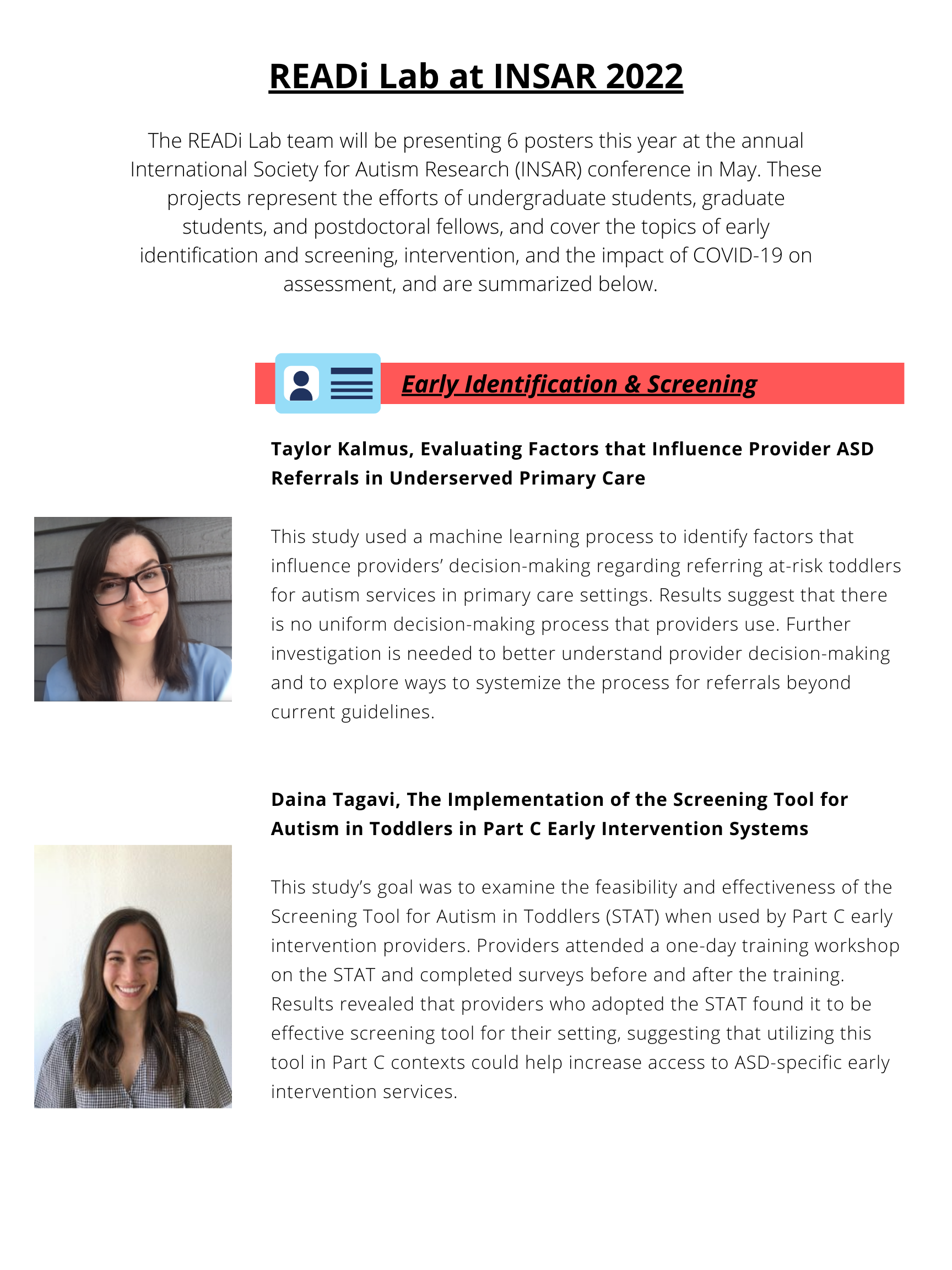
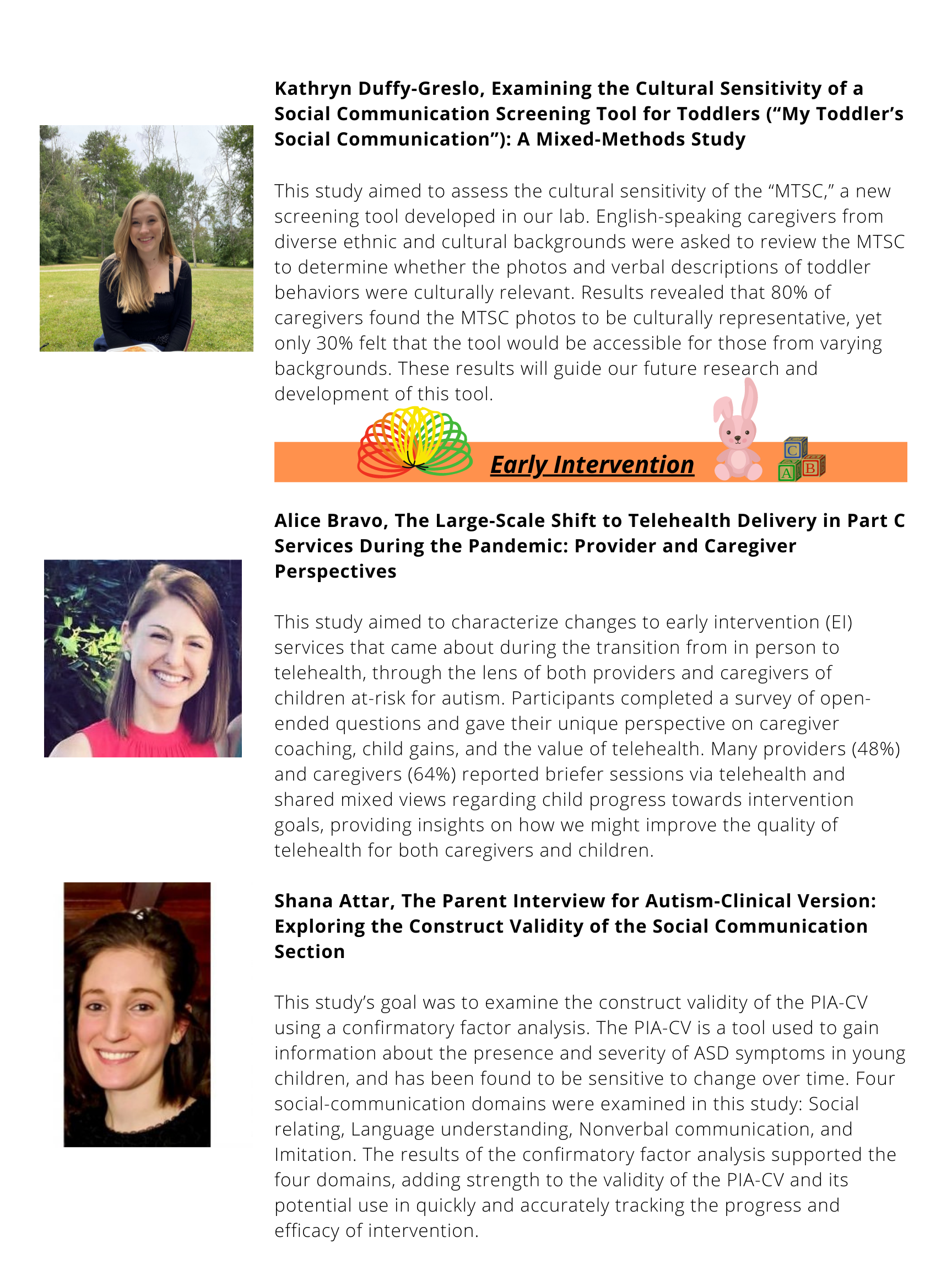
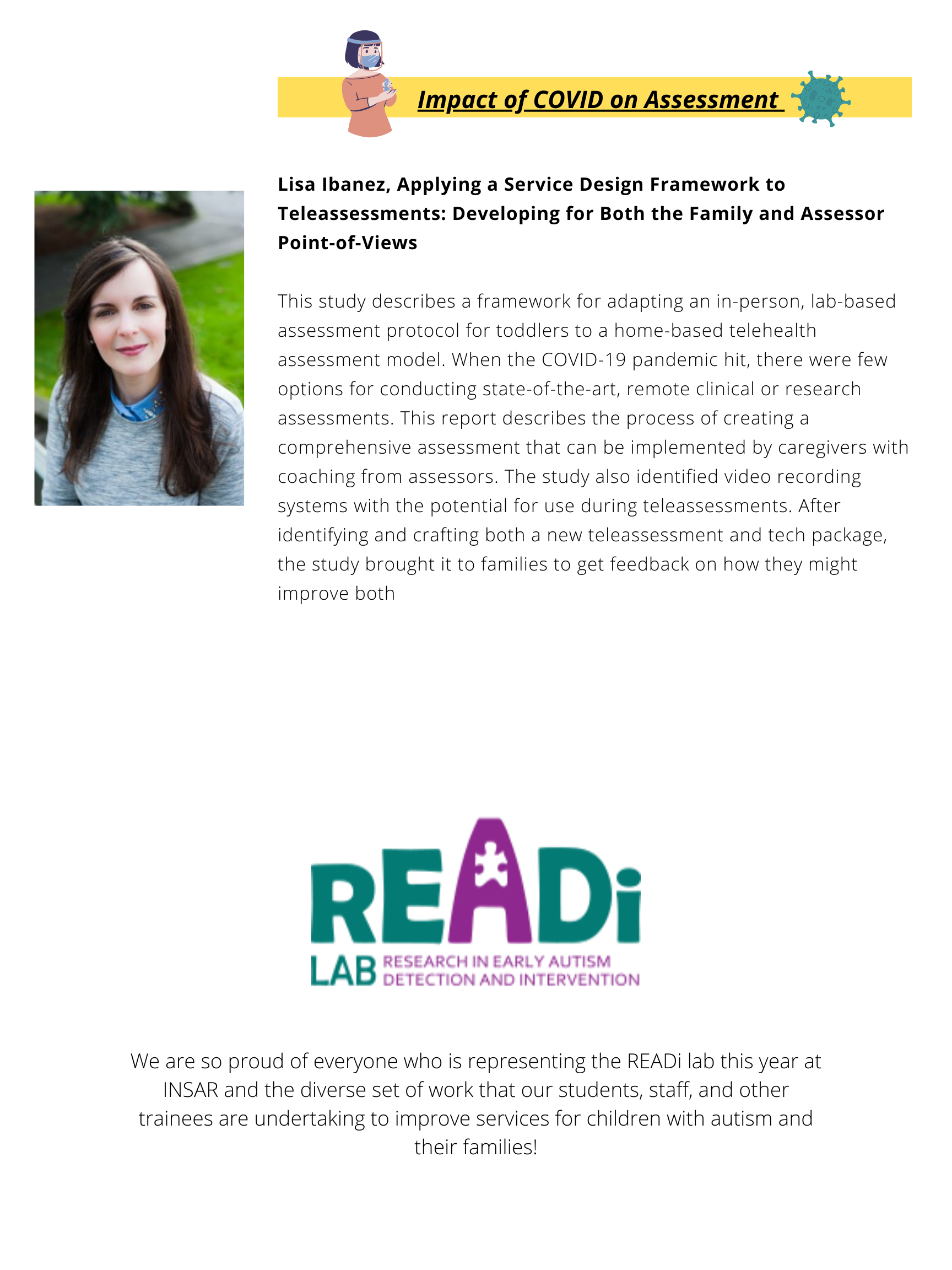

 Shana Attar, a graduate student in the READi Lab, recently received a $20,000 award from the UW Population Health Initiative’s Pilot Grant program. This funding will enable her to continue development of a new screening tool called “My Toddler’s Social Communication (MTSC).” The MTSC (which is fondly referred to as “Mitsy”) was created in our lab to screen for autism in toddlers from diverse cultural, ethnic, racial, and linguistic backgrounds. Unlike other measures, the MTSC combines photos and short written descriptions of specific target behaviors that will be adapted as appropriate for different populations. Her goal is to computerize, validate, standardize, and disseminate the MTSC to frontline providers across the State (and beyond), with the ultimate objective of improving screening so that children at-risk for autism, regardless of their background, may be directed to specialized services in an expedient and equitable manner. Way to go, Shana!
Shana Attar, a graduate student in the READi Lab, recently received a $20,000 award from the UW Population Health Initiative’s Pilot Grant program. This funding will enable her to continue development of a new screening tool called “My Toddler’s Social Communication (MTSC).” The MTSC (which is fondly referred to as “Mitsy”) was created in our lab to screen for autism in toddlers from diverse cultural, ethnic, racial, and linguistic backgrounds. Unlike other measures, the MTSC combines photos and short written descriptions of specific target behaviors that will be adapted as appropriate for different populations. Her goal is to computerize, validate, standardize, and disseminate the MTSC to frontline providers across the State (and beyond), with the ultimate objective of improving screening so that children at-risk for autism, regardless of their background, may be directed to specialized services in an expedient and equitable manner. Way to go, Shana!